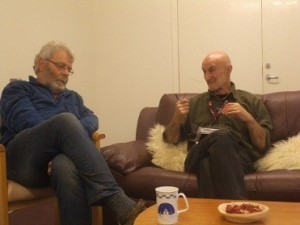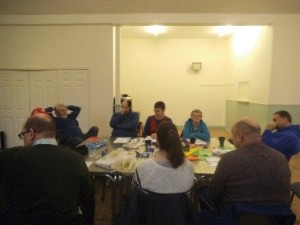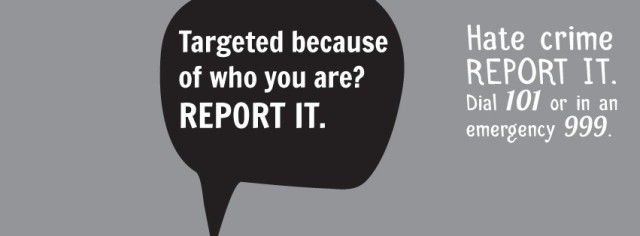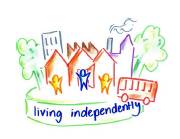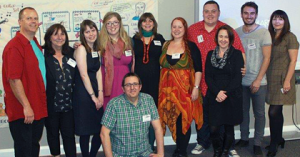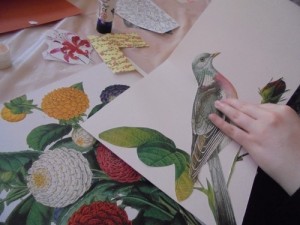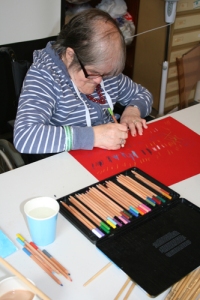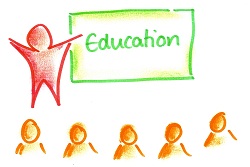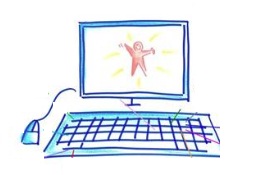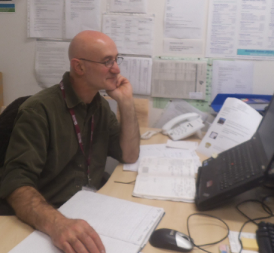
My name is John Spiteri. I am a Local Area Coordinator (LAC) covering Hawick and Jedburgh in the Scottish Borders. I get up early to walk my dogs and feed the chickens, and usually get into the office at around 8.30am. I catch up with colleagues, and respond to phone calls and check emails. Today, I also have to text some people early to remind them about things that are happening later.
Most of the people I support in my job are looking for opportunities to connect to people in their communities and to find work. This is difficult in a place like Hawick with high levels of unemployment and a lot of disadvantage.
At 10am I have a meeting with my colleague Graeme, from HAPI (Hawick Acorn Project Initiative) to discuss work planning for the gardening and cooking project. I helped develop the project after identifying a gap in the area for this kind of activity.
We received funding towards the development of HAPI from SCLD’s Self-Directed Support pilot project. The project helps people to develop new skills and make friendships. It provides work experience in a therapeutic environment.
Elliot is involved in the gardening project. He enjoyed helping to restore an old greenhouse and an allotment to plant onions, cabbages, lettuce, parsley, coriander and chives. Group members will be learning how to cook once the crops have grown.
At 11am I go along to a meeting of the self-advocacy group, Live a Life. I’m not a member of the group or the facilitator. I go along regularly to update on things that are happening in the community. Today, I told the group what I know about local work placements and volunteering opportunities.
 At 12 noon I have a meeting with Geraldine, the Development Worker from Reaching Out, which is a community project in a local church. This successful community project has provided excellent volunteering opportunities for the people I work with. It was great to make links with such an inclusive project.
At 12 noon I have a meeting with Geraldine, the Development Worker from Reaching Out, which is a community project in a local church. This successful community project has provided excellent volunteering opportunities for the people I work with. It was great to make links with such an inclusive project.
I have found the Reaching Out project to be a valuable asset to the community and it provides lots of opportunities for people to work towards their personal goals. Geraldine and I believe that working together has really helped bring different people together in a positive way.
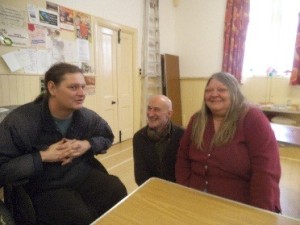 On Wednesdays I try to have lunch at the Soupa Lunch run by Reaching Out. Coming here for lunch gives me an opportunity to catch up with people who I work with. Lots of members of the community come to the lunch. It gives me an opportunity to introduce people and support them to build friendships. For example, I chatted with John and Beryl who now offer informal support to their neighbour who has a learning disability.
On Wednesdays I try to have lunch at the Soupa Lunch run by Reaching Out. Coming here for lunch gives me an opportunity to catch up with people who I work with. Lots of members of the community come to the lunch. It gives me an opportunity to introduce people and support them to build friendships. For example, I chatted with John and Beryl who now offer informal support to their neighbour who has a learning disability.
Today, I spoke with Rhona, the mum of a young man I work with. Since we first started working together, James has become more confident and active in his community and has built his social networks. We talked about his plans to get his own flat and what help he might need from me.
Around 2pm I drop in to a weekly games club that was started by myself and Angela, my Community Link Worker colleague.
People meet in a local pub and some of them have started to make connections with staff and regulars.
I used this time to catch up with people I support, and to stay in the loop with upcoming activities. Today I wanted to catch up with Martin who I am helping to link up with another man I support as they have similar interests.
Throughout the day I receive lots of texts and phone calls from people I work with. After 3pm I have time to catch up with these.
As a result of one of the phone calls I decide I need to visit someone at their home to talk to them in person.
After a busy day I head home around 5pm and relax by taking the dogs out for another walk. My job can sometimes be unpredictable and when you’re working with lots of people, you never know what’s coming next!

